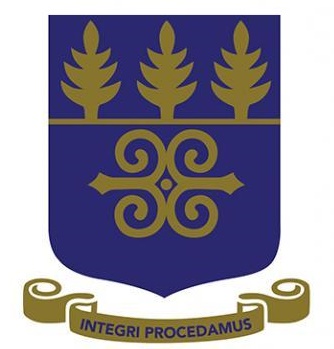ENGL 322 3 Credit Hours
The English Language in Communication
This information is for second semester 2017/2018 academic year
Teacher responsible
Dr. J. A. Anderson
Availability
This course is available open to all visiting students but only as a second semester course.
Course Content
This course will examine the nature of the English language as a tool for communication. It will take a closer look at definitions of communication, language- verbal and non-verbal, and the wider implications of communication theories. The course will also survey the English language and the immediate environment, topics, and participants in interaction in which English is used as a second language in Ghana.
Teaching
Mondays, 09.30pm-11.30pm for 13 weeks
This course will be delivered through lectures, group presentations, guest lectures and discussions.
Formative Coursework
Students will submit group projects which will serve as the interim assessment. There will be class presentations as well. Unannounced in-class quizzes will be done and the marks may be included in the students’ continuous assessment.
Indicative reading
Anderson, J., Ansah, G. and hMensa, P. (2008) “Domains of English in Ghana and Its Use for Specific Purposes” in Krzanowski, M (ed.) English for Academic Purposes in Developing, Emerging and Least Developed Countries. Garnet Education: London.
Ansah, G. (2014) Re-examining the fluctuations in language in education policies in post-independence Ghana. Multilingual Education 4:12; Springer
Bamgbose, A., (2006) The Recurring Decimal: English in Language Policy and Planning. In Kachru, B., Kachru, Y., and Nelson, C., (eds.) The Handbook of World Englishes (645 – 661). Blackwell: Malden
Baumgardener, R (2006) Teaching World Englishes. In Kachru, B., Kachru, Y., and Nelson, C., (eds.) The Handbook of World Englishes (661 – 680). Blackwell: Malden
Bhatia, K, T. (2006) World Englishes in Global Advertising. In Kachru, B., Kachru, Y., and Nelson, C., (eds.) The Handbook of World Englishes (601 – 620). Blackwell: Malden
Coughlin, G. (1992) It May Not Be English, but It’s Strictly Legal. In Goshgarian, Gary (ed) Exploring Language 399 – 402; HarperCollins: New York
Crystal, D. (2001) Language and the Internet. Cambridge: Cambridge University Press
Crystal, D. (2008) Txtg: The Gr8 Db8. Oxford: Oxford University Press
Goddard, A. (2001) The Language of Advertising. London: Routledge
Holt, R. (2006) A Socio-Linguistic Approach to Religious Language. Australian eJournal of Theology 6
Hashim Azirah (2010) “Englishes in Advertizing”. In Kirkpatrick, A. (ed.) The Routledge Handbook of World Englishes (520 – 535). Routledge: New York
Martin, A. E. (2006) World Englishes in the Media. In Kachru, B., Kachru, Y., and Nelson, C., (eds.) The Handbook of World Englishes (583 – 601). Blackwell: Malden
Nickerson Catherin (2010) “The Englishes of Business”. In Kirkpatrick, A. (ed.) The Routledge Handbook of World Englishes (506 – 519). Routledge: New York
In Goshgarian, Gary (ed) Exploring Language 211 – 213; HarperCollins: New York
Grading:
Group presentation 10%
A short essay (summary of 1 paper representative of a particular topic 10%
Term paper 10%
End of semester exam 70%
Grading Scale:
Students’ performance in the course shall be graded as follows:
|
Letter Grade |
Marks |
Grade Point |
Interpretation |
|
A |
80 – 100 |
4.0 |
Outstanding |
|
B+ |
75 – 79 |
3.5 |
Very Good |
|
B |
70 – 74 |
3.0 |
Good |
|
C+ |
65 – 69 |
2.5 |
Fairly Good |
|
C |
60 – 64 |
2.0 |
Average |
|
D+ |
55 – 59 |
1.5 |
Below Average |
|
D |
50 – 54 |
1.0 |
Marginal Pass |
|
E |
45-49 |
0.5 |
Unsatisfactory |
|
F |
0 – 44 |
0 |
Fail |
Class Attendance:
· Attendance is compulsory. Students are required to be punctual at all times.
· Absence from three lecture periods will exempt students from writing the final exams.

